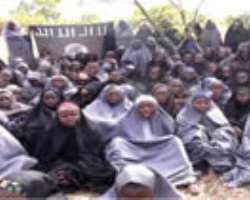Lack of information on Chibok girls, cause for concern – UN

United Nations human rights experts say the lack of information on the steps taken to find abducted persons, including the Chibok school girls, and documentation of cases of kidnappings and abductions, is a source of major concern.
According to three special UN rapporteurs, who visited the North-east region for five days, Nigerian government must also increase its efforts to help women and children after they have been freed from Boko Haram captivity in the country's conflict-ridden northeast.
According to them, 'there is an urgent and pressing need for effective measures to address stigma, ostracism and rejection of women and children as a result of their captivity.'
The three experts, who specialise in child welfare issues, contemporary slavery and health care, said they recognised Nigeria's efforts to find and free those abducted, but more they said, needs to be done.
The UN rapporteurs also noted that 'Boko Haram has used the kidnap of women and young girls as well as the forced conscription of men and boys as a tactic throughout the conflict, which is now in its seventh year. The most high-profile abduction was of more than 200 girls from their school in the north-eastern town of Chibok in April 2014, which caused global outrage.'
The human rights agents further noted that thousands of other people have been seized all through years, while some girls and women among them were forced into marriage with Islamist fighters and subjected to physical and psychological abuse.
They noted that the engagement of Boko Haram terrorists by Nigerian military, all through last year saw hundreds of victims freed from captivity and given trauma counselling at camps for displaced persons. However, there are widespread fears that they will be discriminated against when they return to their homes in the conservative, mainly Muslim region.
The rapporteurs also called for the rebuilding of educational and healthcare facilities in the areas where schools have been used as camps for the displaced and hospitals bombed or set ablaze. – Leadership.
